Leo Tolstoy famously wrote, “All happy families are alike; each unhappy family is unhappy in its own way.” This profound quote sets the stage for Haroula Rose’s compelling family dramedy, “All Happy Families.” Following her critically acclaimed film “Once Upon a River,” Rose once again demonstrates her talent for crafting authentic and resonant stories with a stellar ensemble cast. Ahead of its screening at the Music Box Theatre on October 7, 2024, featuring a post-Q&A with Haroula Rose, we revisit our conversation from the 2023 Chicago International Film Festival to delve into what makes this film, and its cast, so remarkable.
“All Happy Families” unfolds in Chicago, centering on the Landry family. When Graham Landry, a man in his forties portrayed by Josh Radnor, receives an unexpected visit from his celebrity brother Will (Rob Huebel), their parents Sue (Becky Ann Baker) and Roy (John Ashton) soon follow. Reunited in their childhood home, the family grapples with long-standing tensions and buried dynamics that surface under unforeseen circumstances. What ensues is a poignant exploration of familial bonds tested, broken, and ultimately rebuilt in unexpected ways.
This film resonates deeply because it unflinchingly portrays the ingrained issues that can simmer beneath the surface of any family. Much like the documentary “Bad Axe,” “All Happy Families” holds the potential to ignite crucial conversations and foster understanding, albeit through a narrative lens. Beyond the compelling storyline, the film is elevated by exceptional performances, particularly from the actors embodying the Landry family. Chicago native Chandra Russell (“South Side”) also delivers a standout performance as Dana, Graham’s love interest. Dana’s journey of self-discovery and authenticity serves as a powerful counterpoint, highlighting the transformative potential of living truthfully.
“All Happy Families” stands as a testament to Haroula Rose’s dedication and vision, brought to fruition by a passionate team. Before its hometown premiere at the 59th Chicago International Film Festival, we had the privilege to speak with Haroula Rose about the film’s genesis and her collaborative process.
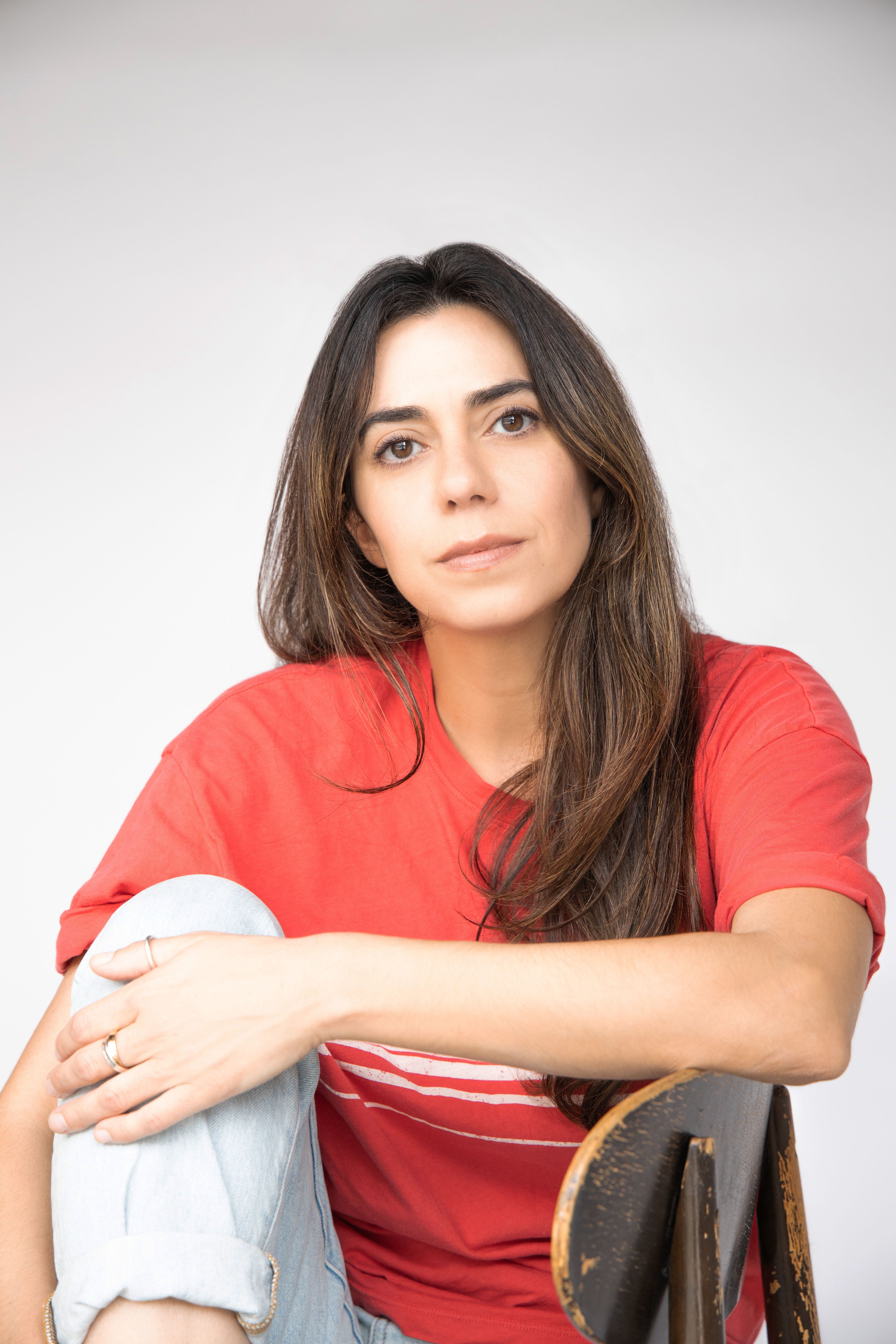 Director Haroula Rose, the creative force behind the family movie 'All Happy Families', poses at the Chicago International Film Festival premiere.
Director Haroula Rose, the creative force behind the family movie 'All Happy Families', poses at the Chicago International Film Festival premiere.
The Genesis of “All Happy Families”: A Collaboration Born from COVID
When asked about the inspiration behind “All Happy Families” and her partnership with Coburn Goss, Haroula Rose shared the organic evolution of their collaboration. Goss, who previously played Uncle Cal in “Once Upon A River,” impressed Rose with his nuanced portrayal of a morally ambiguous character. “The way he played the character didn’t make him entirely hateable in a way that I thought was always interesting,” Rose explained. Recognizing Goss’s innate understanding of dialogue and storytelling, Rose saw the potential for a fruitful writing partnership. Discovering Goss’s extensive background as an award-winning playwright further solidified her conviction.
The constraints of the COVID-19 pandemic inadvertently provided the impetus for “All Happy Families.” Seeking a project that was both creatively fulfilling and financially feasible, Rose and Goss conceived a character-driven dramedy. “We asked ourselves, ‘How can we make something that is character-based, interesting, dynamic and complex, but also manageable?’” Rose recounted. This desire to explore complex family dynamics within a contained setting, coupled with the desire to showcase her versatility as a director, led to the birth of “All Happy Families.” The project became a creative response to the limitations of the pandemic, focusing on intimate storytelling and compelling performances.
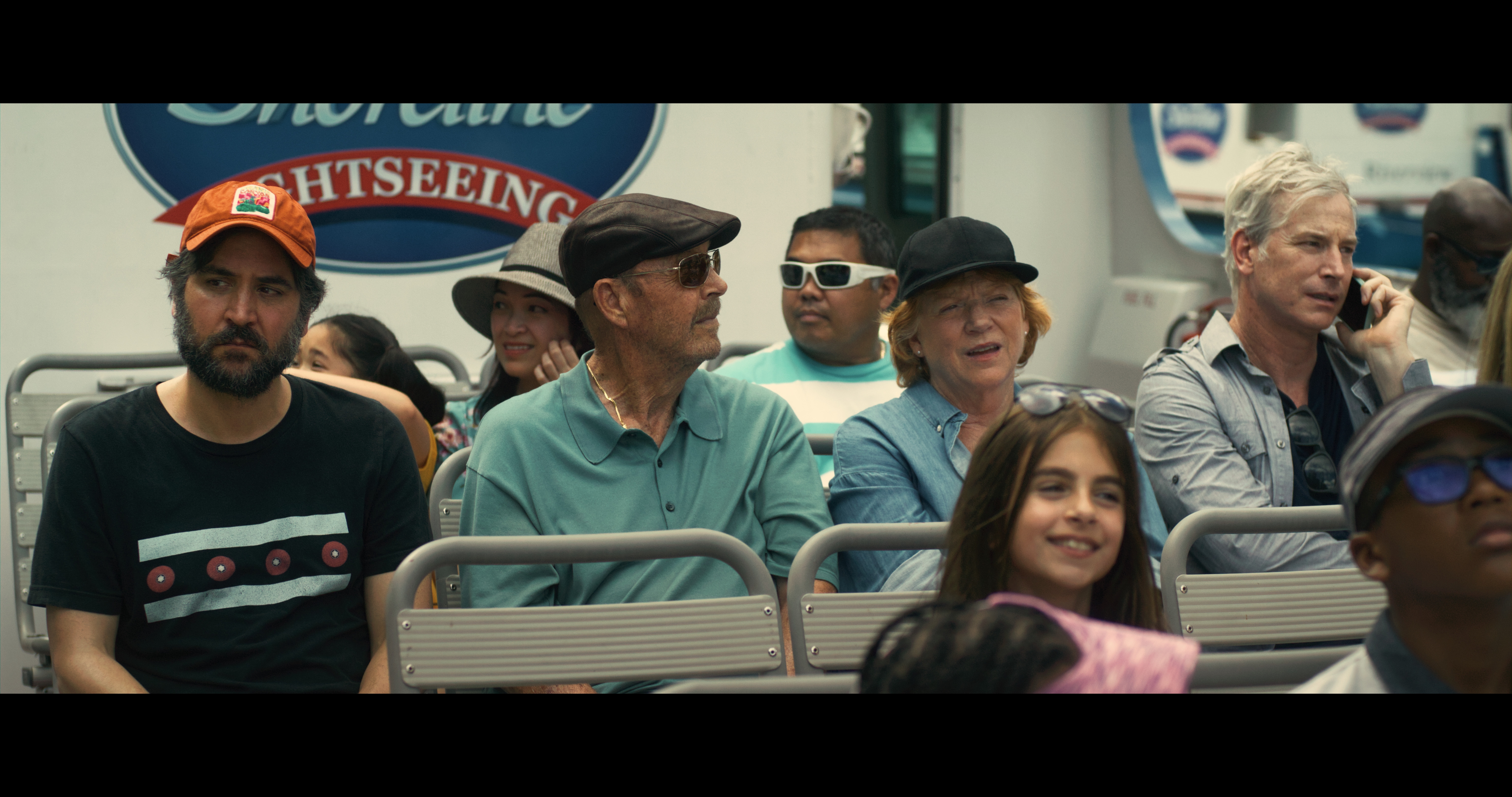 Josh Radnor, John Ashton, Becky Ann Baker, and Rob Huebel in "All Happy Families" movie, showcasing the ensemble cast in a family boat scene.
Josh Radnor, John Ashton, Becky Ann Baker, and Rob Huebel in "All Happy Families" movie, showcasing the ensemble cast in a family boat scene.
Assembling the Landry Family Movie Cast: Perfect Choices for Complex Roles
Casting “All Happy Families” was a meticulous process, driven by Rose’s deep understanding of each character and her desire to find actors who could embody their complexities. Rob Huebel, cast as the celebrity brother Will, was Rose’s first choice. “I have always been a fan of Rob Huebel and the way he can make someone seem both questionable and charming in this way,” she noted. This duality was crucial for Will’s character, and Huebel’s ability to navigate this delicate balance made him ideal. After Huebel connected with the script and engaged in a Zoom conversation with Rose and Goss, his casting was confirmed, much to their excitement.
Josh Radnor, playing Graham, brought a personal dimension to the project. A long-time friend of Rose, their connection dates back to a song of Rose’s being featured on “How I Met Your Mother,” a show Radnor starred in. Rose had always admired Radnor’s acting versatility and saw Graham as an opportunity for him to explore a different kind of role. “He is so versatile, and hasn’t really played this kind of character before. So it was really fun to see him access this part of himself and see him have fun doing it,” Rose shared, highlighting the element of discovery in Radnor’s performance.
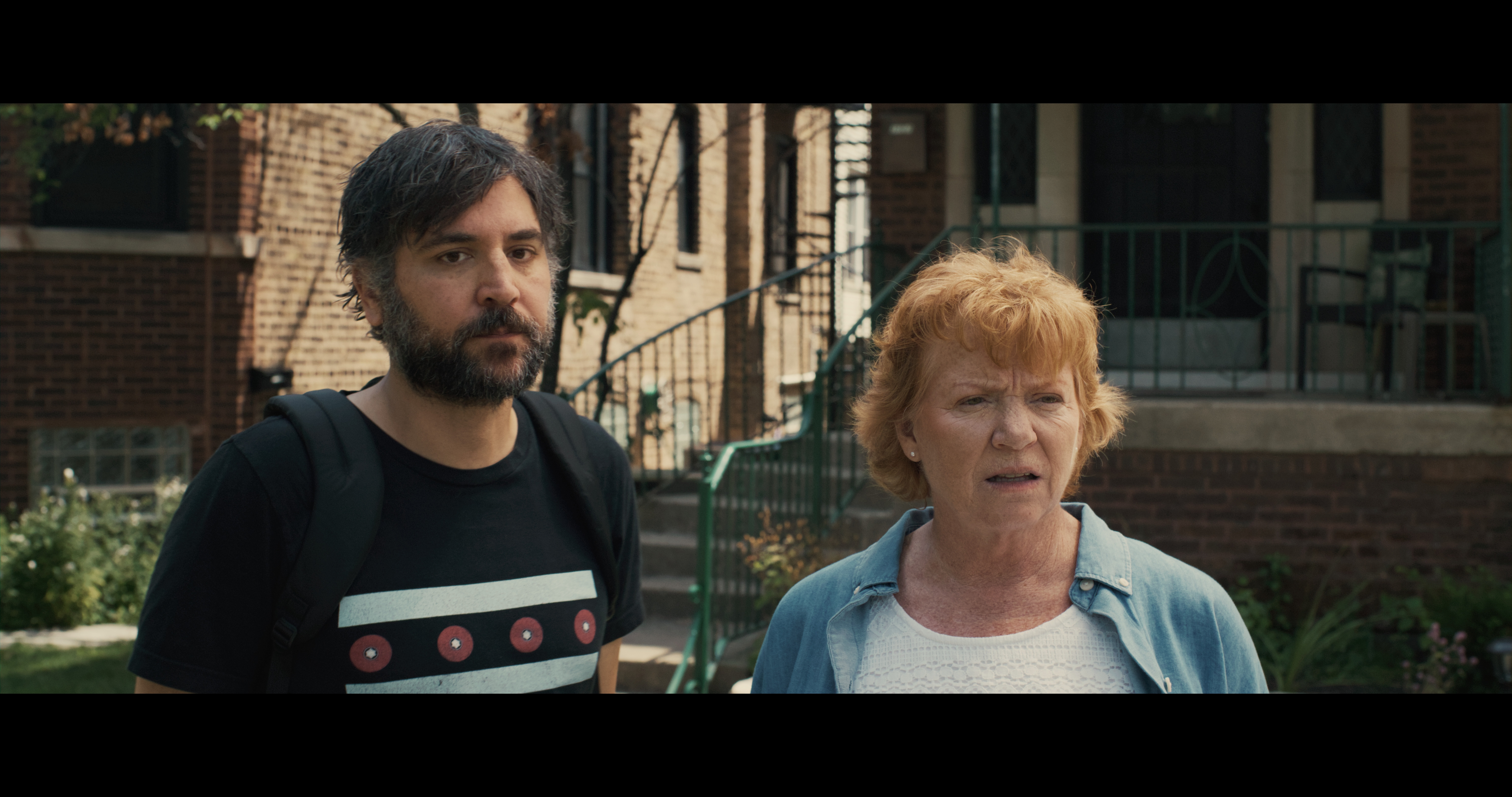 Josh Radnor and Becky Ann Baker in "All Happy Families", a scene highlighting the mother-son dynamic within the family movie cast.
Josh Radnor and Becky Ann Baker in "All Happy Families", a scene highlighting the mother-son dynamic within the family movie cast.
Becky Ann Baker, portraying the matriarch Sue, was a universally acclaimed choice. “Anytime I tell people that she is in this, they all freak out,” Rose laughed, acknowledging Baker’s widespread admiration. Rose emphasized Baker’s authenticity and depth, stating, “There just is not a false note in her performance, and she’s incredible.” Baker’s immediate connection with the character of Sue solidified her casting, promising a nuanced and powerful portrayal of the family’s emotional center.
John Ashton, returning from “Once Upon A River,” seamlessly stepped into the role of Roy, the family patriarch. Having established a rapport with Rose on her previous film, Ashton was a natural fit. “I always knew he could play that guy too, so I didn’t even look anywhere or ask anyone else,” Rose explained, emphasizing the intuitive casting process based on prior experience and understanding of Ashton’s capabilities.
Rounding out the cast were Chicago-based talents Chandra Russell, Antoine McKay, and David Pasquesi. Rose expressed immense gratitude for their contributions, emphasizing their passion for the script and the project itself. “It was because they were drawn to the script and the team behind it,” she noted, highlighting the collaborative and enthusiastic atmosphere on set, even amidst the challenges of filming during COVID times.
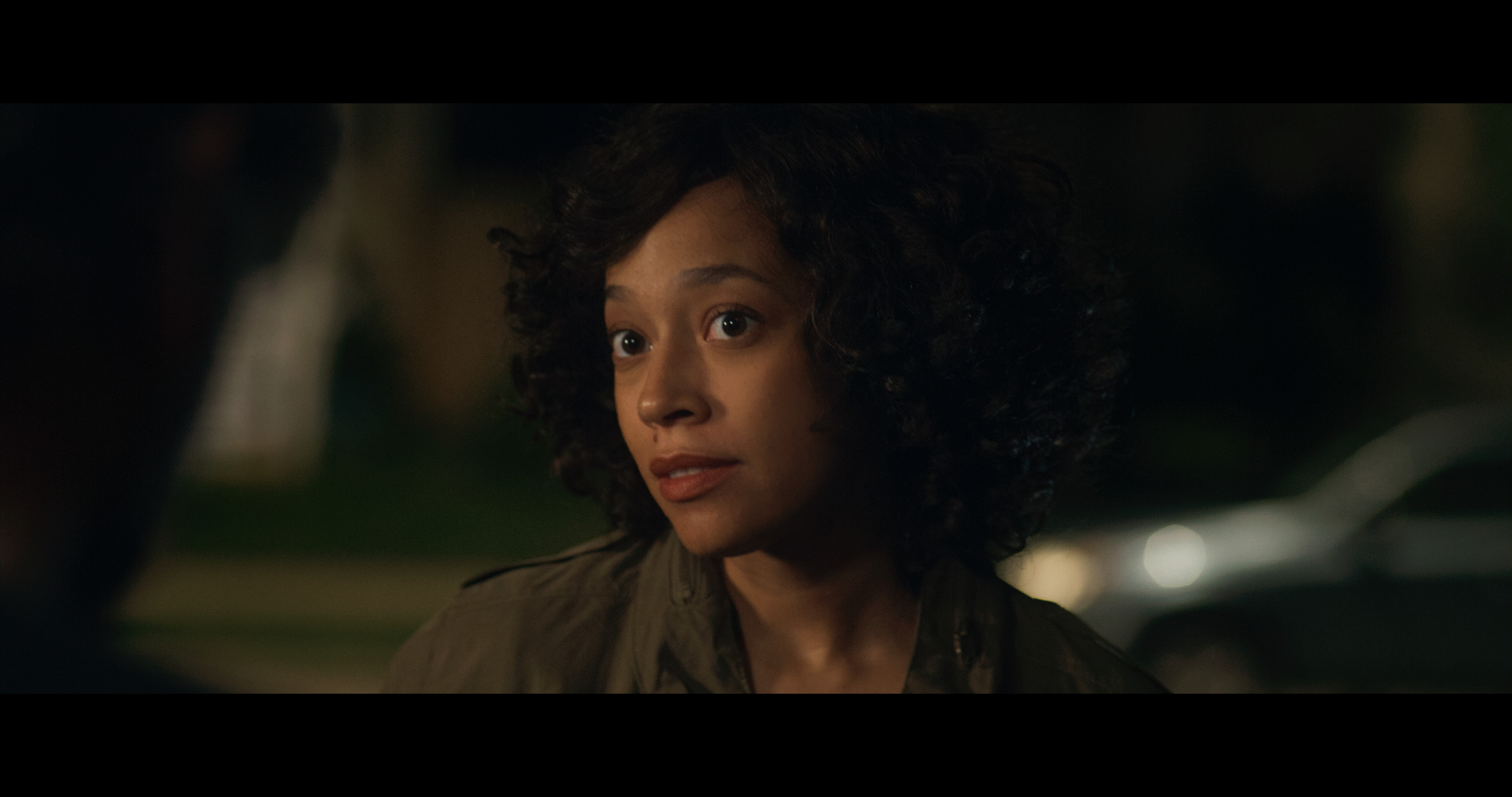 Chandra Russell in "All Happy Families" movie, portraying Dana in a scene that emphasizes her authentic and grounded character.
Chandra Russell in "All Happy Families" movie, portraying Dana in a scene that emphasizes her authentic and grounded character.
Chandra Russell as Dana: A Chicago Gem Adds Depth to the Family Narrative
The casting of Chandra Russell as Dana was particularly significant, bringing Chicago talent to the forefront. Rose elaborated on the decision, stating, “honestly Chandra was always the person we wanted at the end of the day, and Josh was most excited about working with Chandra.” Russell’s work in “South Side” and her inherent authenticity resonated deeply with the filmmakers. Rose described Russell as possessing “a sense of someone who is really sensitive, but also tough and authentic.”
Dana’s character serves as a vital contrast to Graham, offering a grounded and direct perspective. “She was just a little bit more direct, like ‘I don’t have time, I’m busy, but I want to spend time with you.’ I like that she has clear boundaries,” Rose explained. Dana’s self-assuredness, rooted in her sobriety and self-awareness, becomes a catalyst for Graham’s personal growth, adding another layer of complexity to the family dynamic.
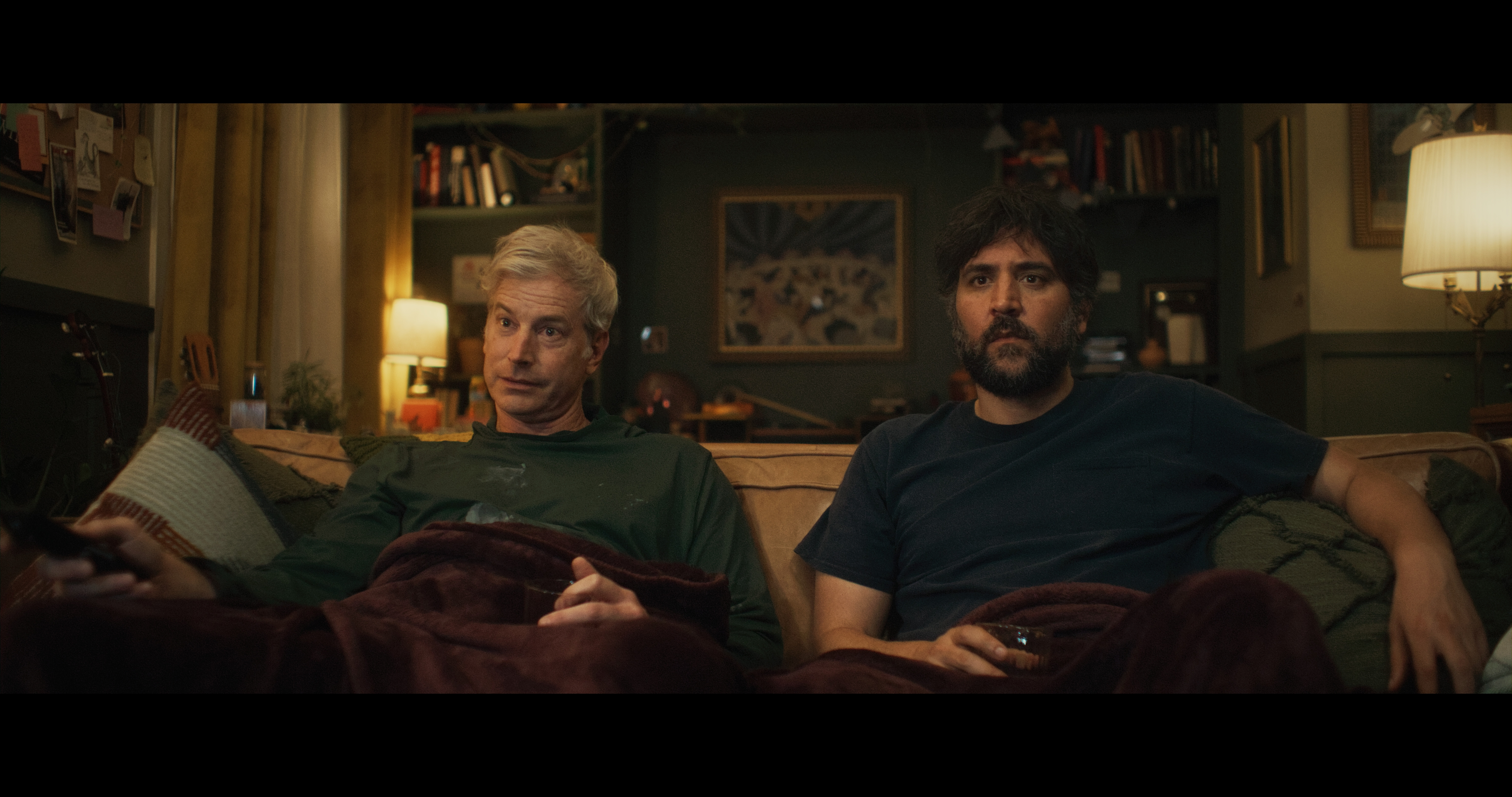 Rob Huebel and Josh Radnor in "All Happy Families" movie, depicting the brotherly dynamic at the heart of the family movie cast.
Rob Huebel and Josh Radnor in "All Happy Families" movie, depicting the brotherly dynamic at the heart of the family movie cast.
Navigating Contemporary Themes: #MeToo and Gender Identity within the Family
“All Happy Families” bravely tackles contemporary social issues with nuance and sensitivity. The film subtly addresses the complexities of cancel culture and the post-#MeToo era, weaving these themes into the fabric of the family narrative. Rose discussed the importance of exploring these topics without being didactic. “We didn’t want to be overtly righteous or moralistic in showing this or tell people exactly how they should feel about it,” she stated. Instead, the film aims to observe and present these issues authentically, allowing audiences to draw their own conclusions.
The dynamic between Will and Graham serves as a microcosm for exploring ingrained misogyny and patriarchal norms. Will embodies a charming yet “douchey” persona, representing a traditional alpha male archetype, while Graham represents a more sensitive and compassionate, albeit somewhat stagnant, counterpart. Rose and Goss deliberately crafted this contrast to examine “how these paradigms keep persisting?” The film doesn’t offer easy answers but rather invites viewers to reflect on these pervasive dynamics within their own lives and relationships.
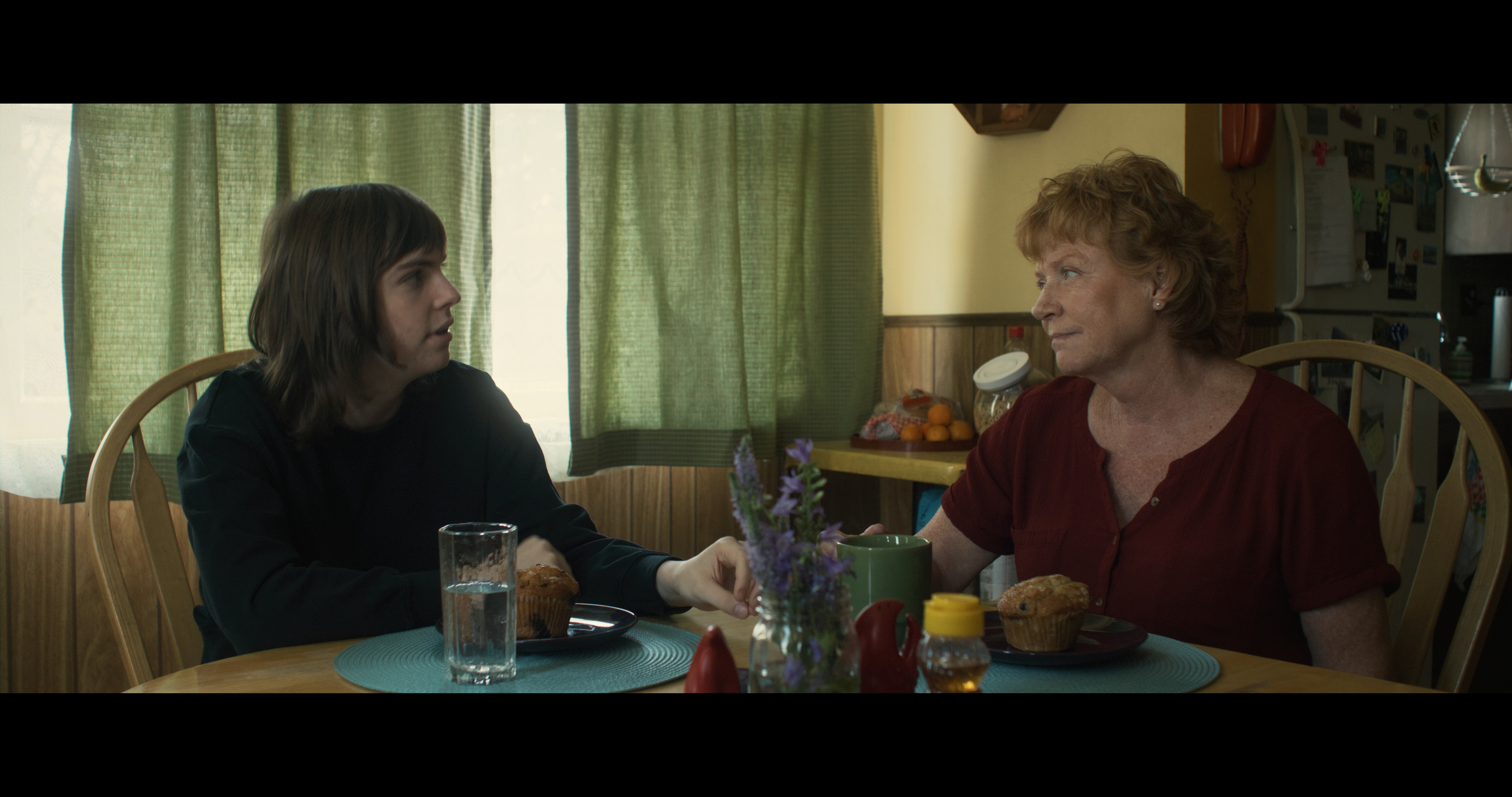 Ivy O’Brien and Becky Ann Baker in "All Happy Families" movie, showcasing the intergenerational family dynamics and acceptance of gender identity.
Ivy O’Brien and Becky Ann Baker in "All Happy Families" movie, showcasing the intergenerational family dynamics and acceptance of gender identity.
The inclusion of Evie’s story, a trans woman character, further enriches the film’s exploration of family dynamics and acceptance. Rose explained that Evie’s character was introduced to “show more about who these people are by how they react and grow from it, and just to experience what it is like to be human right now.” The family’s varying reactions to Evie’s coming out highlight intergenerational differences in understanding gender identity. While Will demonstrates paternal support, Roy embodies a more traditional and narrow-minded perspective. Sue and Graham represent the evolving generation, attempting to bridge the gap and foster understanding, underscoring the ongoing work of empathy and acceptance within families. Ivy O’Brien’s portrayal of Evie was lauded by Rose as “wonderful” and “perfect for the role.”
Chicago as a Character: Filming in the Director’s Hometown
“All Happy Families” is deeply rooted in Chicago, Haroula Rose’s hometown. The film vividly captures the city’s diverse neighborhoods and distinct character. Rose emphasized the significance of setting the film in Chicago, stating, “Making our home base be that two flat building was just very Chicago.” Finding the quintessential Chicago two-flat and neighborhood became a central aspect of location scouting, effectively transforming the city into a character itself.
B-Roll operator Amy Limpinyakul played a crucial role in capturing the essence of Chicago, filming iconic locations and everyday scenes across various neighborhoods. Rose provided a list of “ideal ‘Chicago scenes,'” and Limpinyakul, familiar with the city’s North Side like Rose, expertly captured the desired atmosphere. From upscale restaurants to cozy pubs, the film showcases a range of Chicago settings, contributing to the film’s authenticity and local flavor.
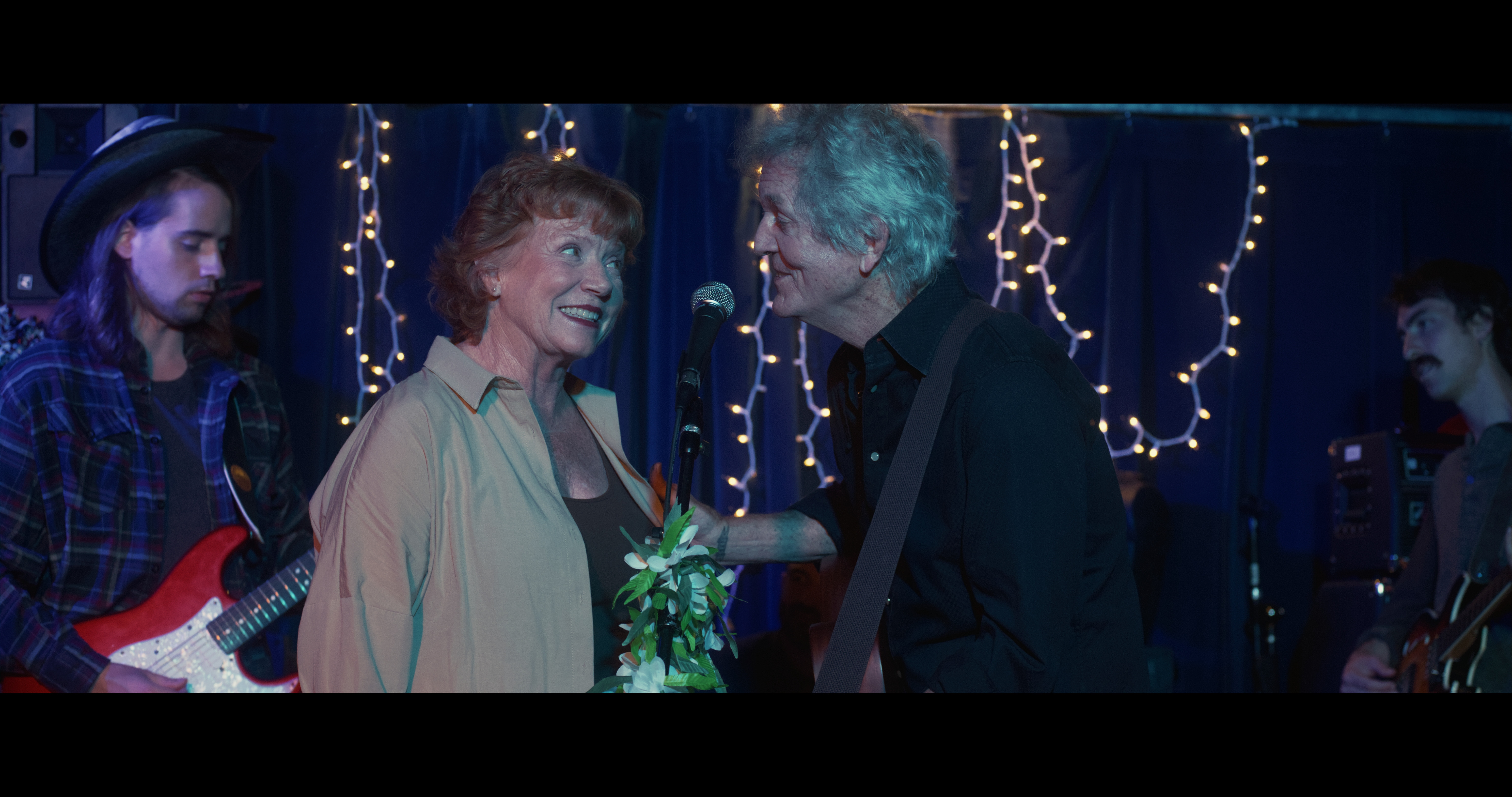 Becky Ann Baker and Rodney Crowell in "All Happy Families" movie, a scene featuring music and performance at a Chicago bar location.
Becky Ann Baker and Rodney Crowell in "All Happy Families" movie, a scene featuring music and performance at a Chicago bar location.
Music and Female Empowerment Behind the Camera
Music plays an integral role in “All Happy Families,” exemplified by Becky Ann Baker’s performance in a local bar. Rose revealed that this scene was filmed at the Hidden Cove on Lincoln, creating a fun and authentic Chicago bar atmosphere. The inclusion of Rodney Crowell, who traveled from Nashville for the shoot, further underscores the film’s musical depth.
Beyond the on-screen talent, “All Happy Families” champions female empowerment behind the camera. Rose proudly highlighted that “All the heads of my departments were women, from the editors to the music supervisors.” Cinematographer Johanna Coelho, with whom Rose had collaborated on previous projects, was instrumental in bringing Rose’s vision to life. Liz Cardenas served as a key on-the-ground producer, and Ania Bista led the production design. This commitment to female leadership extended to Rose’s previous film, “Once Upon a River,” creating a set atmosphere described by actors as “more warm, comfortable, cozy and open” compared to male-dominated sets.
Rose also expressed a desire to further explore the characters of Sue and her friends, envisioning a potential series centered on these strong female characters. “I kind of wish we had more scenes with them,” she admitted, praising the actresses and their on-screen camaraderie. The idea of a spin-off focusing on these “bad ass” older women reflects Rose’s commitment to showcasing underrepresented stories and perspectives.
 Coburn Goss, Michael Shannon, and Haroula Rose at the CIFF premiere of “All Happy Families”, showcasing the collaborative team behind the family movie.
Coburn Goss, Michael Shannon, and Haroula Rose at the CIFF premiere of “All Happy Families”, showcasing the collaborative team behind the family movie.
A Relatable Family Story: Hopes for Audience Connection
Ultimately, Haroula Rose hopes that “All Happy Families” will resonate with audiences on a personal level. “I hope they see themselves for better or for worse. Or they see people that they know for better or for worse,” she shared. The film’s aim is to tap into universal family experiences, sparking conversations and fostering empathy. Rose also highlighted the film’s unique perspective, describing it as “essentially the female gaze on the male gaze,” offering an empowering lens through which to examine gender dynamics and societal expectations.
With a dedicated producing team including Rhianon Jones, Liz Cardenas, and executive producer Michael Shannon, “All Happy Families” is poised to reach a wide audience. Shannon’s early support was instrumental in bringing the project to fruition, alongside the Chicago Media Angels and a passionate team of producers. Rose expressed her hopes for finding a distributor who recognizes the film’s broad appeal, aiming for “All Happy Families” to be discovered and enjoyed by viewers seeking relatable and thought-provoking stories on streaming platforms. Indeed, “All Happy Families” offers a cinematic experience that families can watch together, prompting reflection and discussion across generations.
